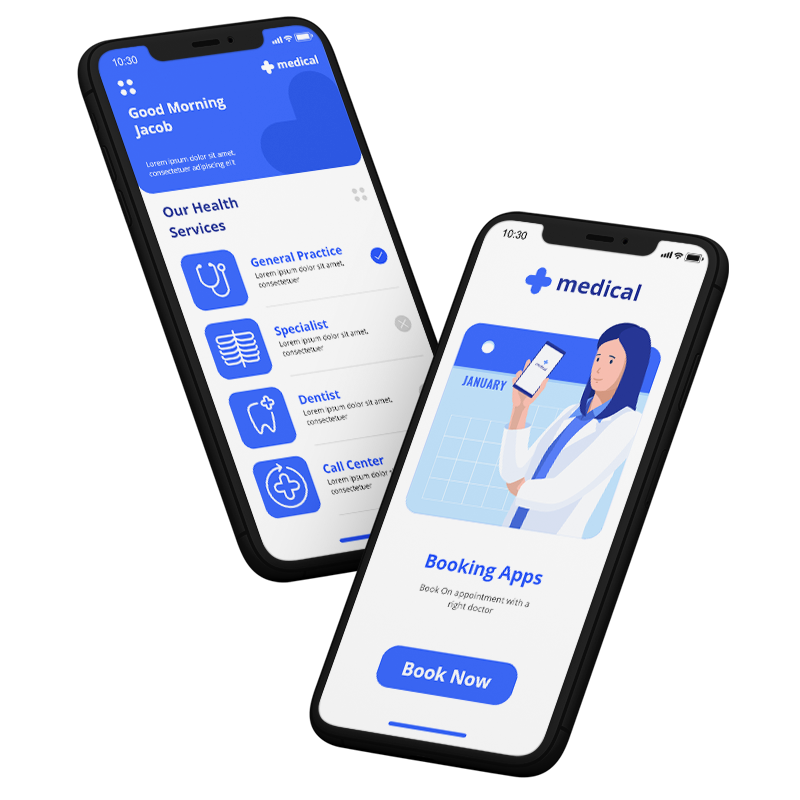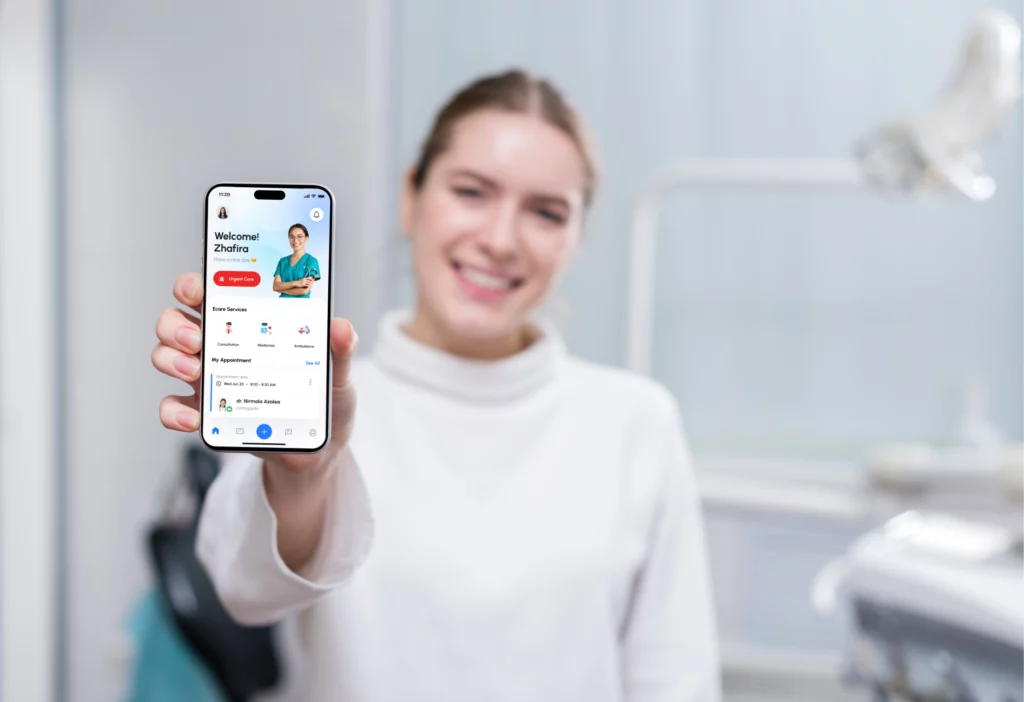Transforming Patient Experience with a User-Friendly Mobile App for Clinics
Transforming Patient Experience with a User-Friendly Mobile App for Clinics
Blog Article
The Future of Health Care: Why Clinics Required a Mobile Application Today
As the health care landscape proceeds to progress, clinics deal with mounting stress to adjust to person expectations for better benefit and access. The assimilation of mobile applications can offer as a vital strategy for improving individual engagement and enhancing operations.
Transforming Patient Expectations
As the landscape of medical care evolves, patient assumptions are undergoing a significant change. Today's patients are significantly looking for convenience, availability, and customized treatment.
Moreover, clients are coming to be much more informed and encouraged, frequently investigating therapies and conditions on the internet before consultations. This enhanced recognition is coupled with a need for transparency in healthcare processes, including expense price quotes and treatment options. As an outcome, carriers are forced to adapt by embracing digital devices that enhance the individual experience.
The expectation for reliable and prompt interaction has never been greater, with many patients considering responsiveness an essential part of quality treatment. mobile app for clinics. In this developing landscape, health care companies need to acknowledge these altering assumptions and leverage mobile applications to promote an extra patient-centric method, making certain that they not only satisfy but exceed the requirements set by today's educated consumers
Enhancing Individual Engagement
Mobile applications facilitate communication between clients and health care carriers, allowing real-time visit organizing, reminders for medicine adherence, and straight messaging features. These capabilities not only enhance comfort however also develop a feeling of accountability amongst clients. Mobile apps can provide educational web content tailored to specific requirements, aiding clients better understand their problems and therapy options.
The integration of gamification aspects within healthcare apps can likewise motivate patients to involve in healthy habits, enhancing favorable way of life modifications. Eventually, boosting individual interaction via mobile applications leads to improved health outcomes, greater client contentment, and a much more collective healthcare experience.
Simplifying Clinic Procedures
Improving center procedures is vital for boosting process performance and optimizing person care. The implementation of mobile applications can considerably minimize management worries, allowing doctor to concentrate much more on patient interactions. By automating visit organizing, client check-ins, and payment processes, facilities can decrease wait times and boost overall functional performance.
Mobile applications also help with real-time accessibility to client records, making it possible for medical care experts to make educated choices rapidly. This immediacy not only improves the top quality of treatment yet also minimizes the possibility of mistakes linked with misplaced or dated info. Leveraging mobile technology sustains a much more orderly technique to taking care of patient follow-ups and treatment strategies, making certain that no crucial steps are ignored.
Furthermore, mobile applications can simplify supply monitoring by offering facilities with devices to monitor drugs and materials successfully. This permits for prompt replenishment and assists prevent disturbances in person treatment due to equip scarcities. By incorporating these capabilities into their everyday procedures, clinics can produce a more cohesive and efficient atmosphere, ultimately resulting in enhanced client results and contentment. Embracing mobile innovation is not just a trend; it is a needed development in the health care landscape.
Improving Communication Channels
Reliable interaction is regularly mentioned as a keystone of high quality medical care distribution. In today's hectic clinical environment, mobile applications can considerably improve interaction channels in between clinics, people, and doctor. By incorporating mobile apps right into their operations, centers can facilitate real-time interactions, making sure that patients obtain prompt information regarding their visits, examination outcomes, and therapy plans.
Mobile applications additionally encourage patients to interact straight with their health care groups through protected messaging functions. This direct line of communication fosters a go to website feeling of engagement and enables prompt clarification of problems, which can result in much better adherence to treatment protocols. Press alerts can remind people of upcoming appointments or drug routines, lowering no-show prices and enhancing overall health results.

Remaining Affordable in Healthcare
In a quickly evolving medical care landscape, organizations need to focus on innovation and versatility to preserve an affordable edge. The integration of mobile applications into medical care services is no longer optional; it is important for centers intending to improve individual interaction, enhance procedures, and boost overall solution delivery.
As patients progressively rely upon digital platforms for health and wellness monitoring, centers that stop working to adopt mobile innovation threat falling behind. A properly designed mobile app can use functions such as consultation scheduling, telemedicine examinations, and accessibility to medical documents, giving people with benefit and fostering loyalty.

Competitors are likewise purchasing mobile solutions, so remaining ahead calls for continual enhancement and remaining notified about technological advancements. Centers need to not only execute mobile applications yet also involve in regular updates and refinements. Eventually, the successful combination of mobile technology will identify forward-thinking healthcare companies and set the benchmark for patient-centric treatment in an electronic globe.
Verdict
To conclude, the combination of mobile applications in facilities is vital to resolve the developing landscape of patient assumptions. By improving patient involvement, enhancing procedures, and improving communication networks, facilities can substantially improve health outcomes. Furthermore, the fostering of mobile innovation settings facilities to continue to be affordable in a progressively electronic health care setting. Inevitably, the strategic implementation of mobile apps stands for an important action towards providing customized and available healthcare, thus satisfying the needs of today's equipped people.
Inevitably, boosting person engagement via mobile applications leads to boosted health and wellness results, higher client satisfaction, and an extra joint healthcare experience.Mobile applications additionally facilitate real-time accessibility to individual documents, enabling medical care professionals to make informed choices promptly. In today's hectic medical setting, mobile applications can significantly improve communication channels in between centers, patients, and medical care carriers.Mobile apps likewise visit this website encourage individuals to communicate straight with their medical care teams with safe and secure messaging functions. Inevitably, the critical application of mobile applications represents an essential step toward supplying available and customized healthcare, thereby fulfilling the requirements of today's equipped clients.
Report this page